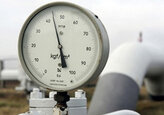
PAS MPs have prepared a number of amendments to the Law on the Oil Products Market and will hold public consultations on July 28 to discuss their draft law.
The corresponding bill will be registered with the Parliament Secretariat immediately after the election of the parliament leadership and its working bodies. The draft law prepared by the PAS deputies provides for urgent intervention in some provisions of the Law on the Oil Products Market, which were introduced at the initiative of the independent deputy Alexandru Oleinic. The draft law developed by the PAS deputies proposes to eliminate the legislative ambiguity and all the shortcomings allowed in the text of the law, which give rise to various risk situations, while retaining the basic concept of policies for setting prices for petroleum products by limiting them, but only in the part related to the retail sale of basic petroleum products. The authors propose that 4-th Article of the Law on the Petroleum Products Market, which regulates the formation of prices, contained a new edition and the new wording would clearly and unequivocally indicate that the maximum retail prices for major petroleum products are set by the National Agency for Energy Regulation based on the Methodology for the calculation and application of prices for petroleum products. This proposal is intended to correct the conceptual shortcomings made in the current version of Art. of the law, which, on the one hand, in the absence of clear clarifications of the type of trade subject to restriction (wholesale or retail), includes under the methodological regulation both types of sales on the oil products market specified in Chapter VI, and, on the other hand, does not give NAER the right to directly limit prices, making it a task for economic agents. In these conditions, many risk situations arose on the oil product market, in particular, pricing, starting with accounting for each batch of imported oil products. The current version of the law mistakenly applies to interchangeable products the procedure for assessing the book value according to the "FIFO method (first in, first out)," which is, in fact, characterized by the "weighted average cost method", which assumes that all goods are of the same type in different quantities, but of different values, are priced at the same price since they are assigned a weighted average cost. In addition, not all economic agents have access to Platts quotes, and not all economic agents have the internal ability to calculate compliance with the maximum selling prices for petroleum products. The restriction on wholesale prices puts at a disadvantage either wholesalers or wholesale buyers, who then sell petroleum products at gas stations. In addition, the use of Platts LPG quotes in a situation where all transactions are based on Argus quotes in their variety and in various proportional formulas: Argus DAF Brest Propan-Butan; Argus DAF Ukrainian-Romanian; Argus FOB Black Sea; Argus North Sea Index. PAS deputies also pointed to the disappearance of certain types of fuel from the sale due to price caps for petroleum products that have properties that exceed those specified in European and national technical specifications, and which represent more variety or marketing tactics than the basic need of consumers. In this regard, the draft law prepared by the PAS deputies stipulates that only the maximum retail price for the sale of basic petroleum products of the standard type (gasoline COR 95 and diesel fuel) is calculated and published daily on the website in NAER. As a result, the wholesale fuel market, as well as retail prices for the sale of liquefied gas and all other types of basic petroleum products, except for basic ones, will become completely free. Retail sale of other types of petroleum products than those for which the maximum price is set will be allowed only if sold at the same station and products of the standard type. It is planned that under these conditions the state will provide consumers with urgently needed oil products at regulated, reasonable, transparent and non-discriminatory prices, easily comparable, and, on the other hand, will provide an opportunity to freely choose alternative products. The bill is also intended to correct another mistake made by the author of the amendments, which, instead of easing the special conditions for obtaining a license for the import and wholesale of basic petroleum products, canceled the paragraph of 13 Art. of the law, which actually provided for the basic rights of the importer provided by the license for this type of activity. Thus, in order to soften the conditions for obtaining the proposed license, it is proposed to reduce the obligatory storage capacity by 5 times, which should be at the disposal of the importer, from 5 thousand to 1 thousand cubic meters, as well as to reduce the requirement for the amount of compulsory equity capital from 8 million lei to 2 million lei. The bill establishes that NAER can adjust the commercial margin in the event of the occurrence of factors that could not have been foreseen earlier, and will be able to interfere with the structure of the margin of no more than 10% of the average actually registered by operators. The proposed changes are expected to benefit all parties involved, customers, operators and the regulator and are easy to implement and cost-effective. // 26.07.2021 — InfoMarket





